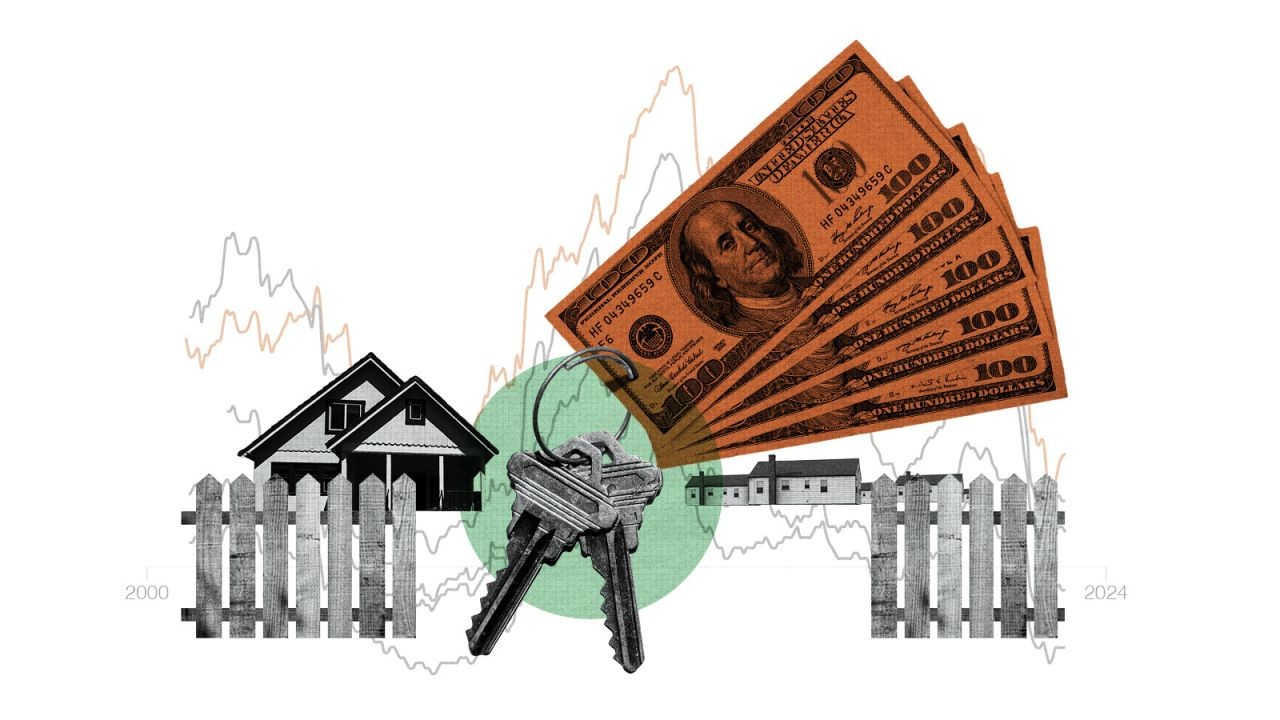Introduction
Amidst the lush landscapes and thriving urban centers of New Zealand, property investors are constantly seeking the next high-growth area. With the property market being a significant pillar of the Kiwi economy, understanding where to invest can be the difference between a profitable venture and a financial misstep. While many believe that all property investments are lucrative, recent data from Stats NZ reveal a more nuanced picture: property prices in certain regions have surged by over 25% in the past year, while others have stagnated. As investors navigate this landscape, the ability to accurately identify high-growth areas becomes paramount. This article delves into the strategies and insights necessary to make informed decisions in New Zealand's dynamic property market. What strategies have you found effective? Share your insights below!
Understanding the New Zealand property market
New Zealand's property market is characterized by regional diversity, influenced by factors such as economic growth, infrastructure development, and demographic shifts. According to the Reserve Bank of New Zealand, the property market has experienced significant fluctuations, partly driven by government policies such as the foreign buyer ban and changes in interest rates. As such, investors must consider local factors when identifying high-growth areas.
Key Drivers of Property Growth in New Zealand
- Population Growth: Urban centers like Auckland and Wellington have seen population increases, driving demand for housing.
- Infrastructure Development: Improvements in transportation and public amenities can significantly boost property values.
- Economic Indicators: Regions with strong economic growth and employment opportunities tend to attract more residents.
Case Study: Auckland's Property Boom
Problem: Auckland has historically been a hotspot for property investment. However, high property prices have raised concerns about affordability.
Action: The Auckland Council has implemented strategies to improve housing supply, including rezoning and promoting high-density developments.
Result: These measures have led to a 15% increase in housing supply over the past two years, stabilizing property prices and making the market more accessible.
Takeaway: Strategic urban planning and policy adjustments can have a significant impact on property markets, highlighting the importance of understanding local government initiatives when investing.
Data-Driven Insights for Identifying High-Growth Areas
Investors often rely on a mix of quantitative and qualitative data to identify high-growth property areas. According to MBIE, analyzing historical price trends, rental yields, and vacancy rates can provide valuable insights. However, it's equally important to consider factors such as community development plans and environmental sustainability initiatives, which can influence long-term growth.
Statistical Analysis for Property Investment
- Price Trends: Look for areas with consistent price growth over several years as a sign of stability.
- Rental Yields: High rental yields can indicate strong demand and potential for capital appreciation.
- Vacancy Rates: Low vacancy rates suggest a high demand for rental properties.
Pros and Cons of Investing in New Zealand's Regional Markets
Investing in regional markets can offer unique opportunities, but also comes with its own set of challenges.
Pros:
- Higher ROI: Regional markets often offer higher rental yields compared to urban centers.
- Lower Entry Costs: Property prices in regional areas are generally lower, making them more accessible to investors.
- Community Growth: Smaller communities often have strong growth potential as they develop.
Cons:
- Market Volatility: Regional markets can be more susceptible to economic downturns.
- Limited Liquidity: Properties in regional areas may take longer to sell.
- Infrastructure Limitations: Lack of infrastructure can hinder long-term growth.
Debunking Common Myths in Property Investment
Myth: "All property in New Zealand appreciates over time."
Reality: While some areas have seen significant growth, others have experienced stagnation. According to Stats NZ, some regional markets have seen minimal price changes over the past five years.
Myth: "Investing in urban centers is always safer."
Reality: Urban centers like Auckland have experienced volatility due to policy changes and supply-demand dynamics. Regional markets can offer more stable returns.
Future Trends in New Zealand's property market
The future of New Zealand's property market is likely to be shaped by several emerging trends. According to a report by Deloitte, technological advancements such as AI-driven valuation models and blockchain-based property transactions are expected to transform the industry. Additionally, sustainability will play a crucial role, with green building practices gaining traction among developers and investors.
Predictions for 2025 and Beyond
- Increased Adoption of Smart Technologies: AI and IoT technologies will enable more efficient property management.
- Focus on Sustainability: Eco-friendly developments will become a priority, driven by government incentives and consumer demand.
- diversification of Investment Portfolios: Investors will increasingly look to diversify their portfolios, including international investments.
In conclusion, identifying high-growth property investment areas in New Zealand requires a blend of data-driven analysis, understanding of local market dynamics, and awareness of emerging trends. By considering these factors, investors can make informed decisions that maximize their returns and contribute to the country's economic growth. Ready to start investing? Here's how you can research NZ's best property markets today. If you found this valuable, share it with your network or comment with your thoughts!
People Also Ask (FAQ)
- How does property investment impact New Zealand's economy? Property investment significantly contributes to economic growth, accounting for a substantial portion of GDP and providing employment opportunities in construction and real estate sectors.
- What are the biggest misconceptions about property investment? A common myth is that all property prices rise over time. However, Stats NZ data shows regional disparities in price growth.
- What are the best strategies for property investment in NZ? Experts recommend focusing on areas with strong economic growth, high rental yields, and infrastructure development for long-term success.
Related Search Queries
- High-growth property areas in New Zealand
- New Zealand property investment trends
- Best regions to invest in NZ property
- NZ property market predictions 2025
- Property investment strategies NZ































